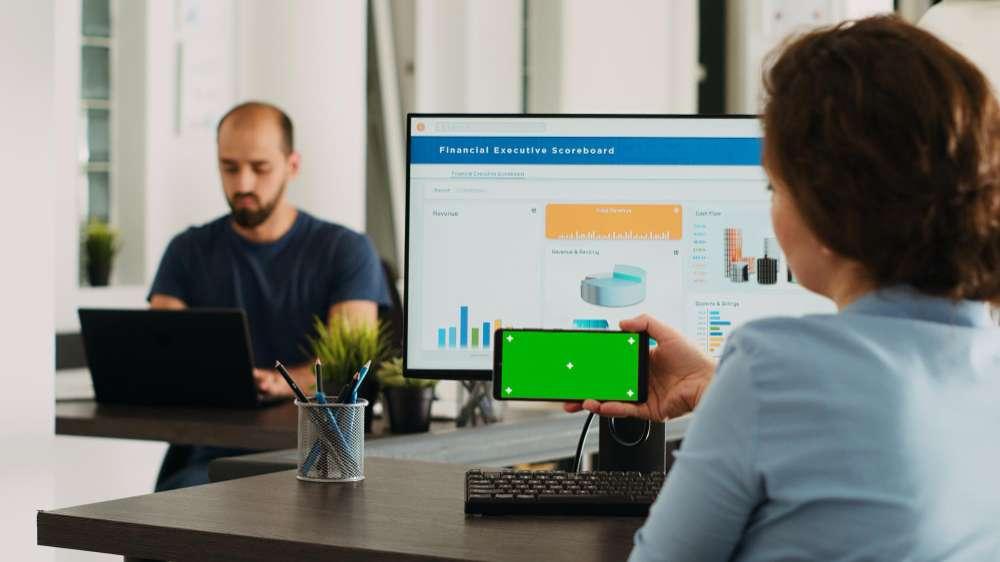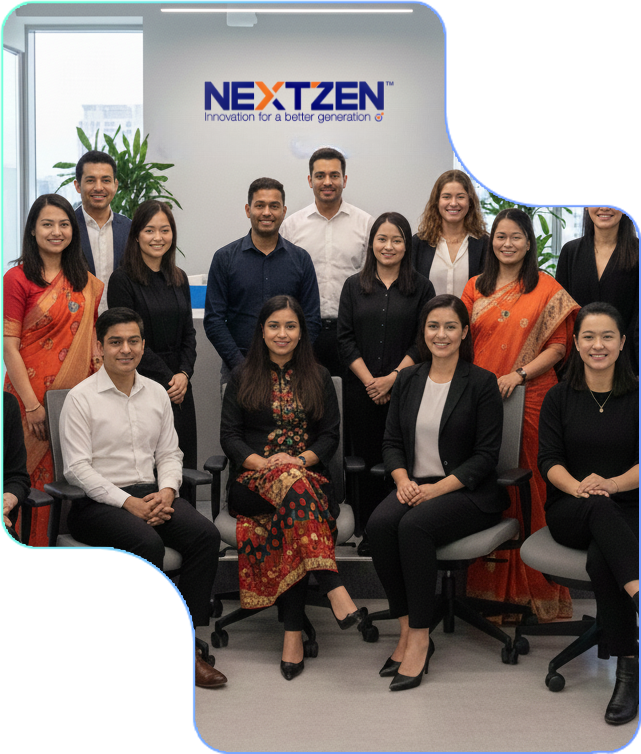Navigating the Future: Accounting Software Platforms for Businesses in 2024
The finance and accounting sector is no stranger to the emergence of online workforce management software vendors, platforms, and applications. Along with the availability of learning management systems and online employee training tools, accounting software has been present in the market, ready to cater to different types of business owners, accountants, managers, and company decision-makers.
The International Telecommunication Union (ITU)’s data reveals that 66% of the world’s population, or 5.3 billion people, are using the Internet today. This shows a huge 24% jump from 2019, with 4.2 billion internet users before the pandemic (ITU, 2022). Though COVID-19 is not the sole reason for this increase, it is evident how much technology has shaped not only the use of the Internet for leisure but also for work. In this fast-paced digital environment, it is important to note which is the most ideal accounting platform to use, especially since finance and accounting depend so much on rigorous quantitative outputs.
This list outlines the leading platforms on the market, their key features, and their pricing options. It also tackles the latest accounting software trends and statistics to help you choose the best accounting software for your company or business.
Introduction:
Accounting software systems, with their efficiency, accuracy, and insights that are critical for success, have become important tools for financial management in the ever-changing corporate scene. The accounting software market is expected to grow even further in 2024 as a result of new features, integrations, and technological advancements. We'll look at major trends, technological advancements, and leading companies in the accounting software market as we examine how the market is changing for businesses in 2024.
1.Cloud-Based Solutions:
- In 2024, cloud-based accounting software platforms are set to dominate the market, offering scalability, accessibility, and real-time collaboration.
- Businesses increasingly value the flexibility and convenience of accessing financial data anytime, anywhere, making cloud-based solutions an essential choice.
02.Artificial Intelligence and Automation:
- AI-driven features such as automated data entry, expense categorization, and invoice processing are becoming standard in accounting software platforms.
- In 2024, businesses will benefit from AI-powered insights, predictive analytics, and intelligent automation, streamlining financial workflows and improving decision-making.
3.Integration and Ecosystems:
- Accounting software platforms are evolving into comprehensive ecosystems, integrating with other business tools and services to create seamless workflows.
- Businesses in 2024 will seek integrated solutions that connect accounting software with CRM, ERP, payroll, and e-commerce platforms, enabling data flow and synchronization across the organization.
4.Mobile Accessibility and User Experience:
- Mobile accessibility and user experience will be paramount in 2024, with accounting software platforms offering intuitive mobile apps and responsive design.
- Businesses will rely on mobile solutions for on-the-go access to financial data, expense tracking, and approval workflows, enhancing productivity and flexibility.
5.Data Security and Compliance:
- With cybersecurity threats on the rise, data security and compliance features will be critical considerations for businesses choosing accounting software platforms in 2024.
- Platforms will prioritize robust security measures, encryption protocols, and compliance with regulatory standards such as GDPR and CCPA to safeguard sensitive financial information.
6.Customization and Scalability:
- Businesses of all sizes require accounting software platforms that can scale with their growth and adapt to their unique needs.
- In 2024, platforms offering customization options, flexible pricing plans, and scalability will appeal to businesses seeking tailored solutions that evolve with their requirements.
7.Industry-Specific Solutions:
Conclusion:
In conclusion, technical developments, shifting market conditions, and shifting consumer demands will all contribute to the continued evolution of accounting software platforms for businesses in 2024. To remain competitive in the digital era, businesses need to adopt cloud-based solutions, automation powered by AI, interconnected ecosystems, mobile accessibility, data protection, scalability, and features tailored to their particular industry. In the competitive world of 2024, organizations may drive development and success by gaining actionable insights, streamlining financial procedures, and utilizing the correct accounting software platform.
Navigating the Future: How Accounting Software Platforms Will Transform Businesses in 2024
Introduction:
The impact of accounting software platforms on the contemporary business environment is more important than ever as we approach 2024. Accounting software platforms have the potential to completely transform how organizations handle their money due to technological improvements, shifting market dynamics, and increasing client expectations. This blog post will discuss how accounting software platforms for companies in 2024 will promote growth, agility, and efficiency, enabling them to prosper in an increasingly digital environment.
1.Integration and Ecosystem Connectivity:
In 2024, accounting software platforms will serve as central hubs within a broader ecosystem of interconnected business tools and services.
Seamless integration with CRM systems, ERP solutions, e-commerce platforms, and banking services will enable businesses to streamline data flow, automate processes, and gain holistic insights into their financial health.
2.AI-Powered Automation and Decision Support:
- AI-driven automation will be a hallmark of accounting software platforms in 2024, revolutionizing tedious tasks such as data entry, reconciliation, and reporting.
- Machine learning algorithms will analyze financial data in real-time, detect anomalies, predict trends, and provide actionable insights to help businesses make informed decisions faster and with greater confidence.
3.Mobile-First Accessibility and User Experience:
- Accounting software platforms in 2024 will prioritize mobile-first design and accessibility, enabling users to manage finances on the go from any device.
- Intuitive mobile apps with responsive interfaces, touch-friendly controls, and offline capabilities will empower businesses to stay connected and productive, whether in the office or on the move.
4.Customization and Scalability:
- Businesses come in all shapes and sizes, and accounting software platforms in 2024 will offer customizable solutions to meet diverse needs.
- Modular architectures, flexible pricing plans, and scalable features will enable businesses to tailor their accounting software to fit their specific requirements and grow alongside their organization.
5.Enhanced Security and Compliance:
- With the increasing prevalence of cyber threats and data breaches, security will be a top priority for accounting software platforms in 2024.
- Robust encryption, multi-factor authentication, and compliance with industry regulations such as GDPR and HIPAA will safeguard sensitive financial data and protect businesses from potential risks.
6.Industry-Specific Solutions and Verticalization:
- Accounting software platforms will offer industry-specific solutions and verticalization to address the unique needs of different sectors.
- Tailored features, workflows, and compliance standards for industries such as retail, healthcare, and manufacturing will enable businesses to optimize their financial operations and stay competitive in their respective markets.
Conclusion:
In summary, accounting software platforms for businesses in 2024 will transform the way that companies handle their finances by promoting efficiency, innovation, and expansion. These platforms' ecosystem integration, AI-powered automation, mobile-first accessibility, customization, security, and industry-specific solutions will enable businesses to flourish in the future digital economy by allowing them to adjust to shifting market conditions and grab new opportunities. Through the adoption of accounting software platforms, organizations may successfully traverse the future with confidence.
Mastering Efficiency: How to Operate Accounting Software Platforms for Businesses in 2024
Introduction:
Platforms for accounting software have grown to be essential tools for companies, providing improved efficiency, simpler financial administration, and insightful data. The sophistication and capacities of these platforms are still developing as we move into 2024, giving firms the ability to easily manage challenging financial environments. We'll present a thorough rundown of how accounting software platforms should be used by companies in 2024 in this blog, with an emphasis on making the most use of capabilities and increasing productivity.
1.Onboarding and Familiarization:
- Begin by thoroughly exploring the features and functionalities of the accounting software platform. Take advantage of tutorials, user guides, and training resources provided by the platform to familiarize yourself with its capabilities.
- Create test accounts or use demo versions to practice navigating the platform and performing basic tasks such as creating invoices, recording expenses, and generating financial reports.
2.Customization and Configuration:
- Tailor the accounting software platform to suit your business's specific needs and workflows. Customize settings, preferences, and templates to align with your company's branding and requirements.
- Configure user permissions and access levels to control who can view, edit, or delete financial data within the platform, ensuring data security and compliance.
3.Data Migration and Integration:
- If migrating from an existing accounting system, carefully plan and execute the data migration process to ensure a smooth transition. Verify data accuracy and integrity before finalizing the migration.
- Integrate the accounting software platform with other business systems and tools, such as CRM software, payroll systems, and banking platforms, to facilitate seamless data exchange and workflow automation.
4.Automation and Streamlining Workflows:
- Leverage automation features offered by the accounting software platform to streamline repetitive tasks and workflows. Set up recurring invoices, automated payment reminders, and expense categorization rules to save time and reduce manual effort.
- Explore workflow automation options such as approval workflows, batch processing, and scheduled reports to improve efficiency and accuracy in financial processes.
5.Training and Support:
- Provide comprehensive training to employees who will be using the accounting software platform on a regular basis. Offer hands-on training sessions, video tutorials, and user documentation to ensure users are proficient in using the platform effectively.
- Utilize customer support resources provided by the platform, such as help articles, FAQs, and support tickets, to address any questions or issues that may arise during operation.
6.Continuous Improvement and Optimization:
- Regularly review and assess the performance of the accounting software platform to identify areas for improvement and optimization. Solicit feedback from users and stakeholders to gather insights into usability, functionality, and feature requests.
- Stay updated on new releases, updates, and enhancements from the platform provider, and implement upgrades or feature enhancements as appropriate to keep the platform current and maximize its value to your business.
Conclusion:
In order for firms to operate accounting software platforms in 2024, meticulous planning, continual optimization, and training are necessary. Businesses may fully utilize accounting software platforms to optimize financial procedures, boost productivity, and spur expansion by following the instructions provided in this tutorial. Businesses can successfully negotiate the intricacies of financial management if they take the proper approach to onboarding, customisation, integration, automation, training, and continual improvement.
Unlocking Efficiency and Growth: Why Businesses Should Embrace Accounting Software Platforms in 2024
Introduction:
Accuracy, agility, and efficiency are critical for success in the fast-paced corporate world of today. By 2024, accounting software platforms will play an even more important role in fostering corporate expansion and success. From simplifying financial procedures to offering insightful data that helps organizations make wise decisions, these platforms have a plethora of advantages. This blog post explains the benefits of using accounting software platforms for businesses in 2024 and explains how doing so can help them reach their greatest potential.
Efficiency and Time Savings:
- Accounting software platforms automate repetitive tasks such as data entry, invoicing, and expense tracking, saving businesses valuable time and resources.
- With streamlined workflows and automated processes, employees can focus on higher-value activities such as strategic planning, analysis, and customer engagement, driving productivity and efficiency.
Accuracy and Compliance:
- Manual financial processes are prone to errors and inconsistencies, which can lead to costly mistakes and compliance issues.
- Accounting software platforms leverage advanced algorithms and validation checks to ensure data accuracy and compliance with regulatory standards, reducing the risk of errors and penalties.
Real-Time Insights and Decision-Making:
- Accounting software platforms provide real-time visibility into financial data, enabling businesses to track performance, monitor cash flow, and identify trends.
- By accessing up-to-date financial reports and dashboards, business owners and managers can make informed decisions quickly, seize opportunities, and mitigate risks effectively.
Scalability and Adaptability:
- As businesses grow and evolve, their financial needs become more complex. Accounting software platforms offer scalability and adaptability to accommodate changing requirements.
- Whether expanding operations, adding new products or services, or entering new markets, businesses can rely on accounting software platforms to scale with their growth and adapt to their evolving needs.
Enhanced Collaboration and Communication:
- Accounting software platforms facilitate collaboration and communication among team members, departments, and stakeholders.
- With centralized data storage, secure access controls, and collaboration tools such as shared workspaces and commenting features, businesses can streamline communication and ensure everyone has access to the information they need.
Competitive Advantage and Innovation:
- In today's competitive landscape, businesses must leverage technology to stay ahead of the curve and drive innovation.
- Accounting software platforms enable businesses to adopt cutting-edge technologies such as artificial intelligence, machine learning, and predictive analytics, giving them a competitive advantage and positioning them for future success.
Conclusion:
In summary, accounting software platforms are essential tools for companies in 2024, providing a plethora of advantages that promote accuracy, efficiency, and expansion. Through the adoption of these platforms, enterprises can optimize their financial procedures, acquire significant perspectives, and arrive at well-informed judgments that propel them towards prosperity in a progressively digital and cutthroat marketplace. Businesses may reach their maximum potential and prosper in the changing business environment of 2024 and beyond with the correct accounting software platform.











